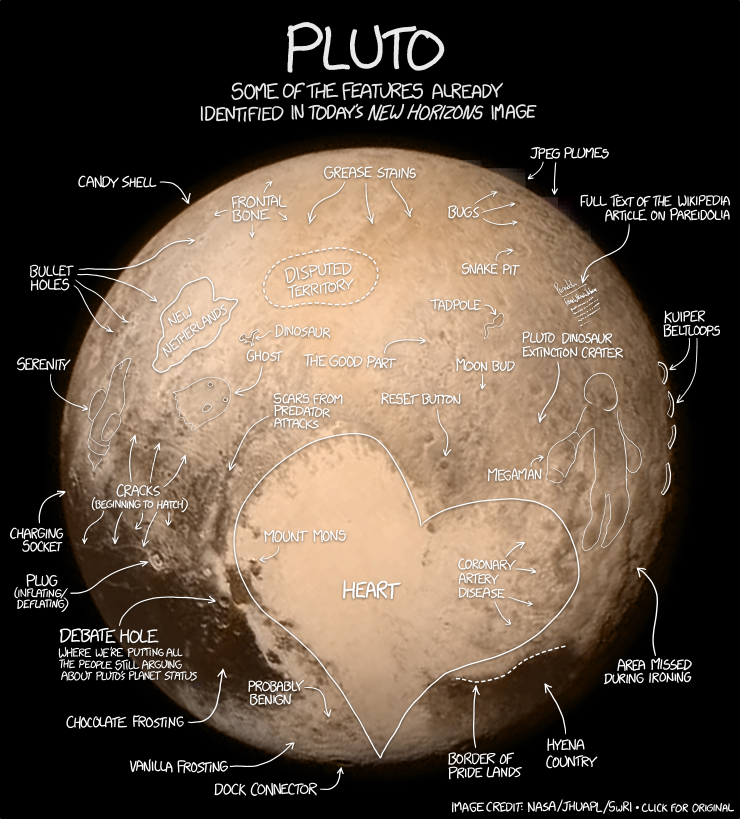Pluto’s dwarf planet status is ‘bulls—-,’ says lead scientist of NASA mission
Pluto is perhaps the most beloved object in our solar system.
So when the New Horizons spacecraft flew past Pluto on July 14 — after a nearly 10-year, 3-billion-mile journey — we weren’t too surprised to learn NASA saw unprecedented traffic to its website, and that the news made the front page of 450 newspapers.
Alan Stern, the lead scientist behind the New Horizons mission, had a lot to celebrate that day:
The mission to Pluto was meant to complete the exploration of the planets in the solar system. But scientists reclassified Pluto from a planet to a “dwarf planet” shortly after New Horizons launched in 2006.
That reclassification split the space-science community.
But Stern has a clear opinion about Pluto’s demotion:
“It’s bulls—-,” he told Tech Insider (and said we could quote him on that).
The problem, Stern said, is that the reclassification largely stemmed from the opinions of astronomers, not planetary scientists. His beef here is that astronomers study a large variety of celestial objects and cosmic phenomena, while planetary scientists focus solely on planets, moons, and planetary systems.
“Why would you listen to an astronomer about a planet?” Stern said.
He compared it to going to a podiatrist for brain surgery instead of a brain surgeon.
“Even though they’re both doctors, they have different expertise,” Stern said. “You really should listen to planetary scientists that know something about this subject. When we look at an object like Pluto, we don’t know what else to call it.”
That’s because Pluto meets the main criteria for planethood: It is rounded by its own gravity.
But there’s more than that, Stern said. Pluto is unexpectedly complex. It has more moons than the entirety of the inner solar system. It possesses close to a million times the amount of atmosphere that Mercury has. The surface has water-ice mountains that could rival the Rocky Mountains here on Earth. Its frozen plains are lined with ridges that scientists think are caused by some kind of ongoing geological process.
“We were just dumbfounded by what a wonderland it is scientifically,” Stern said.
A nonplanet shouldn’t be so active.
“ qualifies in every respect,” he said. Astronomers — not planetary scientists — “made up a definition, which is actually bogus.”
—-
More in link
